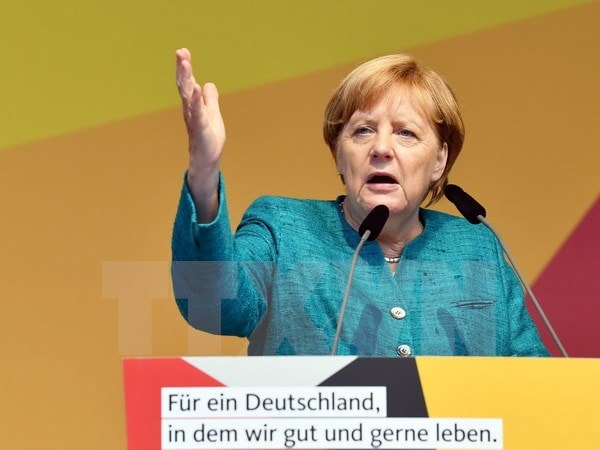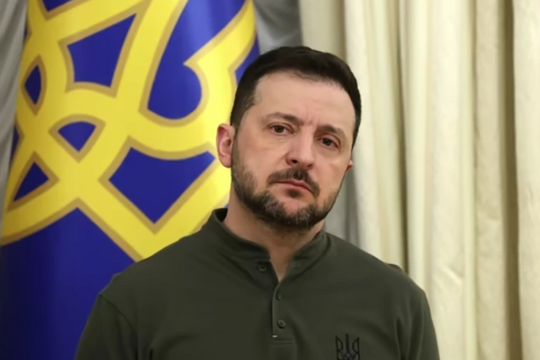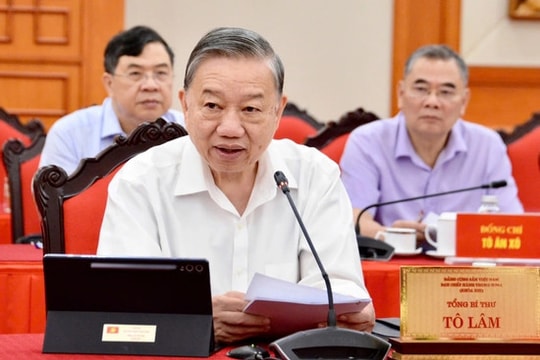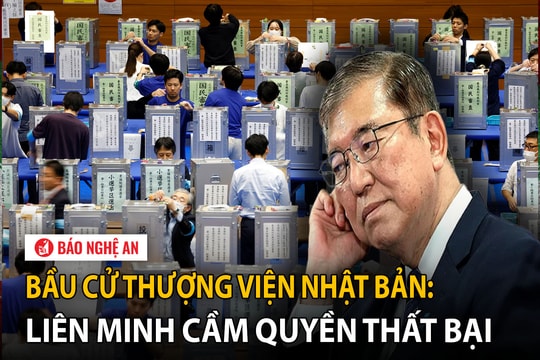German Election: Chancellor Merkel Continues to Affirm Her Leading Position
According to a VNA reporter in Berlin, with just over a month left until the German federal parliamentary election, the atmosphere in preparation for this event has begun to become more bustling.
 |
| German Chancellor Angela Merkel at a press conference in Annaberg-Buchholz, Germany, on August 17. (Source: AFP/TTXVN) |
On many streets in the capital Berlin, people can see many colorful banners and images with slogans of candidates from various parties participating in the election, most notably the current Chancellor Angela Merkel, representing the Christian Democratic Union/Christian Social Union (CDU/CSU), who is currently holding the top position in public opinion polls.
With a simple and meaningful slogan: "Germany, where we live well," up to this point, Chancellor Merkel and her CDU/CSU Alliance have continued to maintain significant advantages over other candidates in opinion polls.
According to the latest poll conducted by the Forsa Institute for Stern magazine and RTL TV channel, the CDU/CSU Alliance received 39% of voters' support, down 1% compared to the previous poll.
However, the CDU/CSU coalition is still far ahead of the Social Democratic Party of Germany (SPD) of candidate Martin Schulz when this party only received 23% support.
Besides, after 3 terms leading the country, Ms. Merkel still receives the support of more than 50% of German voters.
With her reasonable policy adjustments, Ms. Merkel is considered by analysts to be the most promising candidate and is almost certain to hold a fourth term as Chancellor, with positive assessments of her ability to govern the country.
Meanwhile, since officially becoming the leader of the SPD party last March, Mr. Schulz has suffered many consecutive failures in state elections, leading to doubts about his ability to win against Ms. Merkel in the general election on September 24.
In addition to the two parties above, the poll results also show that the support rate for the Left Party (Linke) continues to remain at 9%, the Free Democratic Party (FDP) and the environmentalist Green Party are both at 8%, while the support rate for the right-wing Alternative for Germany (AfD) party has increased by 1% compared to previous polls, reaching 8%.
Analysts say a coalition between the CDU/CSU and SPD, or the CDU/CSU and the FDP or Greens, is likely to form a new government in the fall.
However, the results of the general election in September will be more or less affected by Turkish President Recep Tayip Erdogan's intervention in the German election campaign on August 18.
In his statement, Mr. Erdogan called the CDU, SPD and the Green party "enemies of Türkiye."
Mr. Erdogan even called on about one million Germans of Turkish origin not to vote for these parties in the general election on September 24.
Under Germany's complex electoral system, voters cast ballots for parties rather than directly electing the chancellor.
The prime minister is usually the top candidate of the party that wins the most votes and must be approved by the newly elected parliamentarians through a secret ballot./.
According to VietNam +
| RELATED NEWS |
|---|




.jpg)



